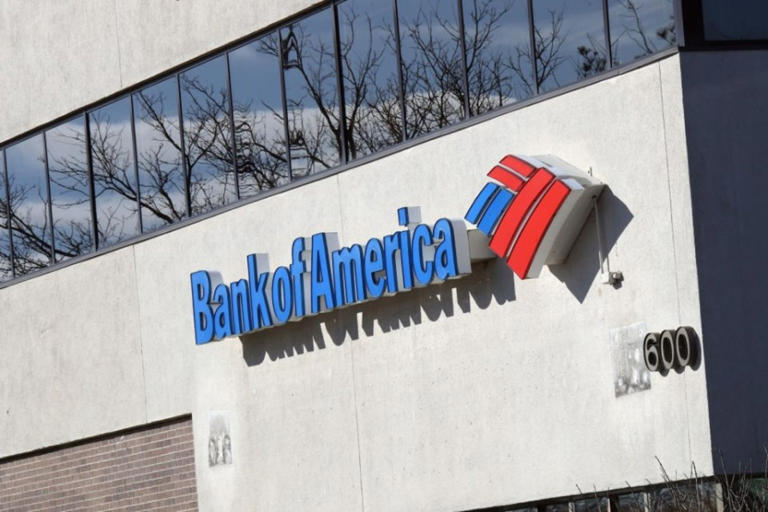The recent tragedies involving junior staff at Bank of America (BofA) have once again thrust the working conditions within the investment banking industry into the spotlight. The passing of Leo Lukenas, a 35-year-old US Army veteran and BofA associate based in New York, on May 2 due to a blood clot, and the subsequent death of 25-year-old Adnan Deumic, a credit portfolio and algorithmic trader at BofA in London, from a suspected heart attack while playing football at an industry event, have raised serious concerns about the pressures faced by junior employees in these high-stakes environments.
Reports surrounding Lukenas’s passing revealed that he had expressed intentions to leave BofA for a boutique investment bank, citing his grueling work schedule of 110-hour weeks at the Wall Street giant. The revelation triggered a flood of anonymous testimonials on online forums like Reddit and Wall Street Oasis, where users shared their own harrowing experiences of enduring long hours and intense pressure within the investment banking industry.
Similarly, Deumic’s untimely demise shed light on the demanding nature of his work, with colleagues attesting to his relentless schedule of 11 to 12-hour workdays, often without breaks for essentials like coffee. While there is no direct evidence linking these deaths to the demanding work culture at BofA, the incidents have once again ignited discussions around the mental and physical toll of working in investment banking.
The tragic events at BofA are not isolated occurrences within the industry. In 2013, the death of Moritz Erhardt, a 21-year-old intern at BofA Merrill Lynch in London, from an epileptic seizure after reportedly working for three consecutive days, raised alarms about the excessive working hours and high-pressure environment faced by junior staff. While fatigue was identified as a potential contributing factor, the exact cause could not be definitively determined.
These incidents underscore the longstanding criticism leveled against the investment banking sector for its culture of overwork and intense pressure, particularly for junior employees. Many young bankers report working over 100 hours per week in a bid to impress their superiors and secure lucrative roles in the industry, often at the expense of their physical and mental wellbeing.
Junior bankers are frequently tasked with menial and time-consuming assignments, such as creating PowerPoint presentations and compiling data in Excel, which keep them tethered to their desks long after senior colleagues have left for the day. Some interns in London have described a phenomenon known as the “magic roundabout,” where taxi drivers wait for them to change clothes at home before shuttling them back to the office at dawn.
The toll of such demanding work environments on mental health is evident. A survey conducted by Mental Health First Aid England found that a staggering 83% of UK financial services employees had contemplated changing jobs due to the adverse effects of work on their mental wellbeing. Despite increased awareness of mental health issues in the workplace, many employees feel that their employers could do more to support their mental health and wellbeing.
In response to mounting concerns, some financial services firms have implemented measures to address workplace stress and burnout. Goldman Sachs, for instance, raised salaries for first-year analysts by 29% in 2021 and introduced policies to safeguard junior bankers’ time off. However, the underlying culture of long hours and intense pressure persists, contributing to a climate of stress and anxiety among employees.
Critics argue that the prevailing “kill or be killed” culture in investment banking perpetuates a cycle of overwork and burnout. Some industry veterans, like former London Stock Exchange head Xavier Rolet, have dismissed complaints from junior staff as “entitlement,” suggesting that those unwilling to endure long hours should seek employment elsewhere. Such attitudes highlight the entrenched norms within the industry that prioritize performance at any cost.
Even senior employees are not immune to the pressures of investment banking. Ian Dodd, Goldman’s former recruiting chief in London, filed a personal injury claim against the bank earlier this year, citing the detrimental effects of “unreasonable and excessive hours” on his physical and mental health. Dodd’s case underscores the pervasive nature of workplace stress within the industry, affecting employees at all levels.
While some banks have implemented policies to monitor and limit working hours, critics argue that these measures are often circumvented by managers keen to meet demanding targets and deadlines. To effect meaningful change, investment banks must adopt more transparent and proactive approaches to addressing workplace stress and burnout. This includes publishing comprehensive mental health statistics and prioritizing employee wellbeing at all levels of the organization.
The investment banking industry faces a critical juncture in its efforts to reconcile high performance with employee health and wellbeing. As stakeholders grapple with these complex issues, it is imperative to foster a culture that promotes sustainable work practices and prioritizes the health and happiness of all employees. Only then can the industry truly thrive in a manner that is both ethical and conducive to long-term success.
